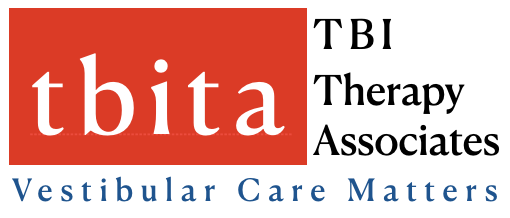PPPD

PPPD in TBIs
Individuals who have sustained a TBI, due to the disruption of sensory input and integration processes in the brain following a TBI can contribute to the development or exacerbation of symptoms characteristic of PPPD.
The hallmark symptoms of PPPD include persistent feelings of dizziness, unsteadiness, and visual disturbances, often described as feeling "off balance" or "rocking" sensations. These symptoms may be accompanied by a heightened sensitivity to motion, visual stimuli, and busy environments. Individuals with PPPD may also experience symptoms such as anxiety, fatigue, difficulty concentrating, and avoidance of activities that trigger or exacerbate symptoms.
Diagnosis
Diagnosing PPPD in individuals with TBIs involves a comprehensive evaluation by a trained vestibular specialist such as a vestibular specialist. The diagnosis is based on the presence of characteristic symptoms, a history of TBI or head trauma, and the exclusion of other potential causes of dizziness and imbalance.
Treatment
Treatment for PPPD focuses on symptom management, functional improvement, and enhancing the quality of life. Treatment options may include:
Vestibular rehabilitation therapy (VRT): A specialized form of physical therapy that includes exercises and manoeuvers to improve balance, stability, and adaptation to vestibular stimuli.
Cognitive-behavioural therapy (CBT): Therapy techniques aimed at addressing anxiety, maladaptive beliefs, and avoidance behaviours associated with PPPD.
Medications: Medications may be prescribed to manage symptoms such as anxiety, depression, or migraine headaches that commonly coexist with PPPD.
Lifestyle modifications: Strategies to optimize sleep, manage stress, and minimize triggers that exacerbate symptoms, such as avoiding excessive visual stimulation or prolonged periods of upright posture.
Prognosis: The prognosis for individuals with PPPD following TBIs varies depending on the severity of symptoms, response to treatment, and individual factors such as age, overall health, and the presence of coexisting conditions. While some individuals may experience significant improvement with appropriate management and rehabilitation, others may have persistent symptoms that require ongoing symptom management and support.
Overall, managing PPPD in individuals with TBIs requires a multidisciplinary approach, with treatment tailored to the individual's specific symptoms, functional limitations, and goals. Collaboration between clinicians, including vestibular physiotherapist, psychologists, and other specialists, is essential for optimising outcomes and improving quality of life for individuals living with PPPD following TBIs
